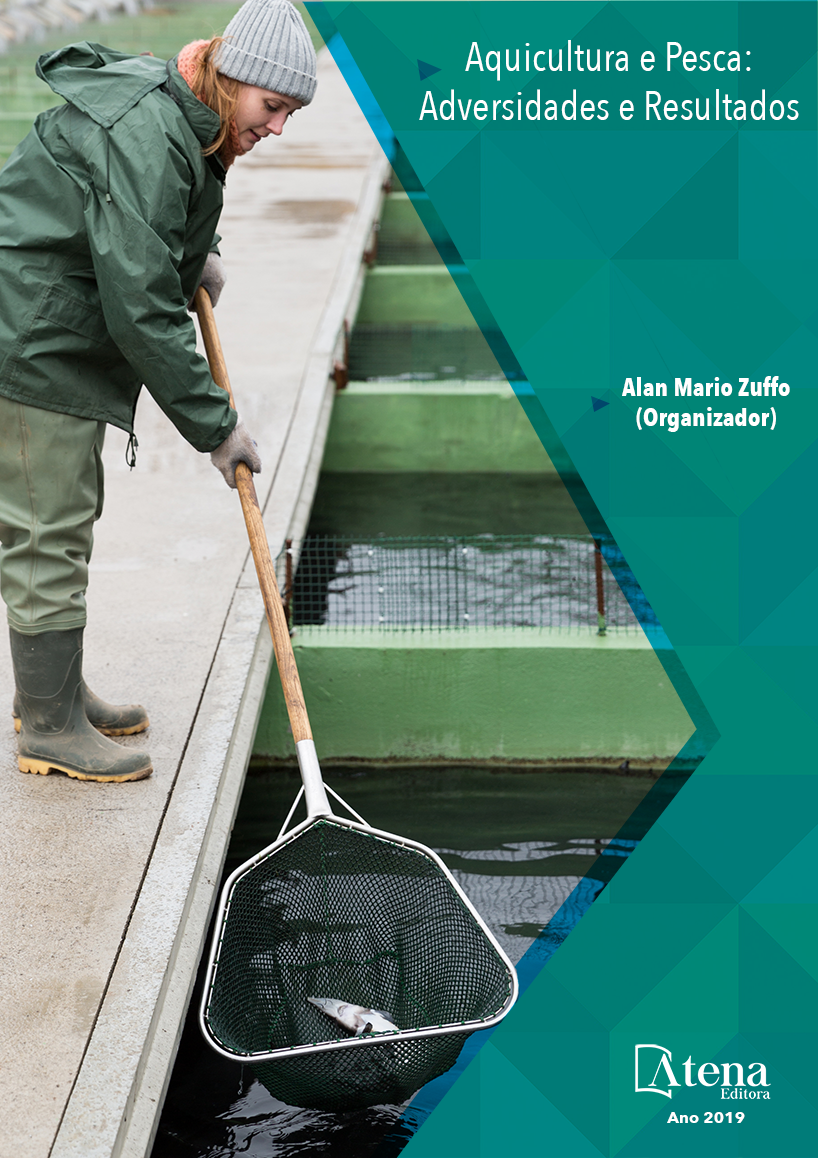
RENDIMENTO E PERDAS POR COCÇÃO DO FILÉ DE PACAMÃO (Lophiosilurus alexandri) SILURIFORME, PSEUDOPIMELODIDAE
O objetivo deste estudo foi avaliar o
rendimento do filé do pacamão (Lophiosilurus
alexandri) e o percentual de perdas por
cocção. Para obtenção do rendimento de
filé, foram obtidas as medidas morfométricas
de comprimento total (CT), comprimento da
cabeça (CC) e altura dorsal (LD). Os filés foram
obtidos através de corte longitudinal no sentido
craniocaudal utilizando faca apoiada em tabua
de corte. Foram avaliados os percentuais
de rendimento de filés com e sem pele. Para
avaliação dos índices de perda por cocção, os
filés foram submetidos a aquecimento em forno
elétrico. O percentual de rendimento de filé com
pele (FCP) e filé sem pele (FSP) foi de 37,5 e
32,7% respectivamente. Houve uma perda
por cocção irreversível de 29,4%. O pacamão
apresenta um baixo rendimento de filé em
relação a filés de espécies nobres. Este fato
não inviabiliza sua industrialização, tendo em
vista o vasto interesse de consumo da espécie
na forma de filé.
RENDIMENTO E PERDAS POR COCÇÃO DO FILÉ DE PACAMÃO (Lophiosilurus alexandri) SILURIFORME, PSEUDOPIMELODIDAE
-
DOI: 10.22533/at.ed.27219290319
-
Palavras-chave: encolhimento, morfometria, industrialização
-
Keywords: shrinkage, morphometry, industrialization
-
Abstract:
The aim of this study was to
evaluate the performance of pacamão fillet
(Lophiosilurus alexandri) and the percentage
of cooking loss. To obtain the fillet income,
morphometric measurements of total length
were obtained (CT), head length (CC) and
dorsal height (LD). The steaks were obtained
by slitting the cranium-tail direction using knife
resting on cutting plank. We evaluated the yield
percentage of fillets with and without skin. To evaluate the loss ratios for cooking the
steaks were subjected to heating in an electric furnace. The percentage of skin fillet yield
(FCP) and fillet skinless (FSP) was 37.5 and 32.7% respectively. A loss by irreversible
cooking 29.4%. The pacamão has a low fillet yield over the fillets noble species. This
fact does not preclude its industrialization, given the vast kind of consumer interest in
the form of steak.
-
Número de páginas: 15
- Diego Aurélio dos Santos Cunha
- Ana Larissa Silva Barros
- Aurea Veras Barbosa de Souza
- Lyssandra Kelly Silva Ferreira
- Elaine Cristina Batista dos Santos
- Diego Carvalho Viana
- Diego Aurélio Santos Cunha


